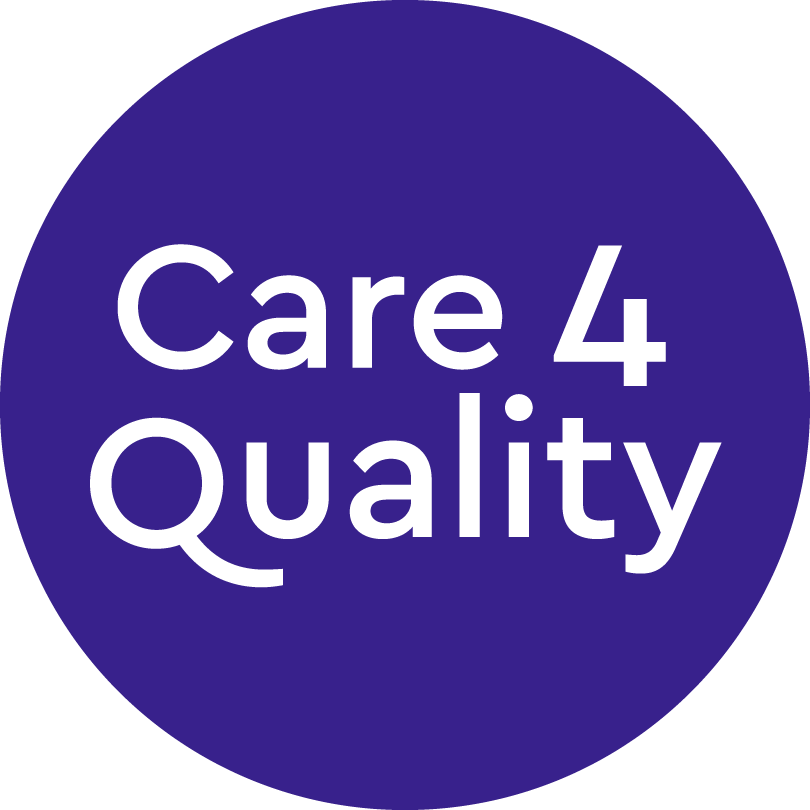Stress Awareness Month, April 2025
What is Stress?
We all deal with stress now and then – whether it’s money worries, moving to a new place, or work piling up. Stress is just how our body reacts to pressure or challenges. It kicks in when we’re feeling anxious, frustrated, or totally overwhelmed. A little bit of stress isn’t always a bad thing – it can actually help us stay sharp and get things done. That’s what people call “good stress.”
But when stress sticks around for too long, it can take a toll on us. Our body releases a hormone called cortisol when we’re stressed, which sets off the “fight-or-flight” response. It’s like our body’s way of getting ready to deal with danger – heart rate goes up, we feel more alert, and we get a burst of energy. Handy in the moment, but if we’re constantly stressed and cortisol stays high, it can mess with our health causing problems like anxiety, sleep issues, and even a weaker immune system.
Types of Stress:
Stress generally falls into two categories:
- Short-term stress caused by specific situations, like an important test or a crucial meeting.
- Chronic Stress or long-term stress stems from ongoing pressures, such as work issues or personal challenges.
Signs and Symptoms of Stress:
Stress shows up in many ways. Here are some common signs to look out for:
- Headaches, muscle tension, fatigue, sleep problems, and digestive issues.
- Feelings of anxiety, irritability, being overwhelmed, or sadness.
- Changes in appetite, overeating or undereating, procrastination, and withdrawing from social activities.
Stress vs. Anxiety: Are They the Same?
Not quite. Stress usually shows up in response to something specific – like a deadline or a big life change. Anxiety, on the other hand, tends to stick around longer and feels more like a constant sense of worry or fear, even when there’s no clear reason. Knowing the difference can really help when it comes to taking care of your mental health.
Coping with Stress: What Can You Do?
- Practice deep breathing exercises, try yoga, or go for a walk to release tension.
- Engage in mindfulness meditation, positive thinking, or cognitive-behavioural strategies to manage your thoughts.
- Prioritise sleep and exercise, eat a balanced diet, and nurture healthy relationships.
- If stress becomes overwhelming, consider talking to a therapist or counsellor for support.
Practical Tips for Managing Stress:
- Try prioritising tasks, breaking them into smaller steps, and setting deadlines to avoid feeling overwhelmed at work. The Pomodoro Technique (working in focused 25-minute intervals with short breaks) can also help maintain productivity without burning out.
- Establish a daily routine that balances work with relaxation. This might include scheduling time for exercise, reading, or unwinding. For example, take 10 minutes each evening for deep breathing or meditation to help clear your mind.
- Be realistic about what you can achieve, and don’t be afraid to say no when necessary. Setting clear boundaries helps prevent overcommitting and feeling stressed by unrealistic expectations.
- Engage in activities that bring you joy and help you unwind – whether it’s gardening, painting, or spending time with loved ones. Taking up a hobby like knitting or playing an instrument can also be a healthy distraction from daily stressors.
Why is Stress Awareness Important?
In today’s fast-paced world, stress is often an inevitable part of life. Recognising the signs of stress is crucial for understanding its impact and managing it effectively. De-stigmatising mental health issues is equally important, as it encourages open conversations and reduces the judgment often associated with stress and mental health challenges.
Promoting self-care is essential for both mental and physical well-being. Taking time for yourself isn’t just acceptable – it’s necessary for maintaining a healthy, balanced life.
Self-Help Tools for Managing Stress:
- Headspace: A popular app offering guided meditation, breathing exercises, and mindfulness techniques to reduce stress and improve well-being.
Website: Headspace - Calm: An app for relaxation, sleep, and stress management with guided meditations, breathing exercises, and calming music.
Website: Calm - Mindful Chef: A meal delivery service offering healthy recipes that support stress management and overall well-being.
Website: Mindful Chef - The Stress Management Society: Provides free resources, including downloadable techniques and guides to help manage daily pressures.
Website: The Stress Management Society
Professional Help for Stress:
If stress becomes overwhelming, professional support can make a significant difference. Here are some services you can access:
- The British Association for Counselling and Psychotherapy (BACP): Find a registered therapist near you for counselling and support.
Website: BACP Find a Therapist - Samaritans: A 24/7 helpline offering emotional support to those in distress or struggling with stress, anxiety, or other mental health issues.
Phone: 116 123 (free, 24/7)
Website: Samaritans - Mind: A UK-based charity offering support and resources for managing stress and mental health conditions.
Website: Mind
Recommended Reading on Stress:
- “The Stress Solution” by Dr. Rangan Chatterjee: A practical guide to understanding stress and implementing science-backed methods to manage it.
- “Why Zebras Don’t Get Ulcers” by Robert M. Sapolsky: A deep dive into the science of stress and its effects on the body.
- “The Relaxation and Stress Reduction Workbook” by Martha Davis: A hands-on guide filled with exercises to reduce stress and promote relaxation.
Georgia’s Personal Story of Stress and Burnout:
Last summer, my husband and I found ourselves in yet another house move. Just a few months earlier, we’d moved from Cornwall to Somerset. But this time, we were relocating within Somerset to a new home that was a better fit for us. While the move itself was a positive change, it was still incredibly stressful. Packing up everything again after such a short time, along with the added complexities of moving, was mentally and physically exhausting.
The stress didn’t end with the move. After we settled in, we quickly faced a challenging few months of family issues. A loved one was going through a difficult time, and we were both doing everything we could to support them. For a while, I felt like I was running on empty. My stress levels skyrocketed, and what started as everyday worry turned into frustration, anxiety, and eventually, burnout.
I started getting upset daily, often finding it hard to switch off. At first, I tried to cope by overworking. I would start doing tasks in the evenings as I work from home, thinking it might distract me from everything going on. But all it did was make me more overwhelmed and drained.
During this period, I decided to speak with management. I am fortunate to work for an understanding and supportive group of people who genuinely listened. They were empathetic and helped where they could. Together, we worked on adjusting some of my workload and having Teams calls/check-ins when I needed them, and they encouraged me to take regular breaks, which was a huge help in managing my stress levels.
Thankfully, I have a supportive husband who could see I was struggling. He suggested we go for walks after work to clear our heads, something that seemed so simple but made such a difference. He also helped me learn to set boundaries with myself – especially when it came to work – and encouraged me to take breaks. I found videos online and calming music that helped me when I started to feel overstimulated or overwhelmed.
It was a process, and I’m still learning how to manage stress better, but I’ve realised the importance of slowing down and seeking support when needed. This experience taught me that taking small, mindful steps like setting boundaries, asking for help, and simply going for a walk can have a huge impact on our mental well-being.
In Conclusion:
Recognising and addressing stress is crucial for both our physical and mental health. While stress is natural, failing to manage it can have serious long-term consequences. By becoming aware of your stress triggers and taking proactive steps to manage it, you can significantly improve your well-being.
Start by introducing small changes into your daily routine—whether it’s practicing a relaxation technique, engaging in mindfulness, or simply taking a short walk. These simple practices can make a big difference in how you cope with stress and help you maintain balance.
How Care 4 Quality Can Help Alleviate Stress:
At Care 4 Quality, we understand that stress is a significant concern for individuals and organisations, particularly in the demanding and often unpredictable world of health and social care. We recognise how overwhelming it can be to manage the pressures of regulatory requirements, compliance, and the daily challenges of caregiving.
Our services are designed to help alleviate this stress by providing practical support and guidance. Whether you’re preparing for CQC inspections or working through complex regulations, we’re here to walk you through each step of the process. With tailored services like mock inspections, compliance audits, bespoke policies and staff training, we aim to ease the burden and help you focus on what matters most – delivering exceptional care.
We also offer mentorship programmes that foster a culture of continuous improvement. Our team’s support ensures you’re not navigating these challenges alone. Reducing stress and boosting confidence in your ability to meet regulatory demands is at the heart of what we do.
At Care 4 Quality, we truly believe in the value of a balanced and supportive environment, not only for your staff but for the people you care for. Together, we can create a space where stress relating to regulatory compliance is managed and well-being thrives.
Take the Next Step:
Visit our website at https://care4quality.co.uk/ or connect with us on LinkedIn at https://www.linkedin.com/company/care4quality-ltd/ to learn how we can support you in reducing stress and achieving outstanding care quality.

